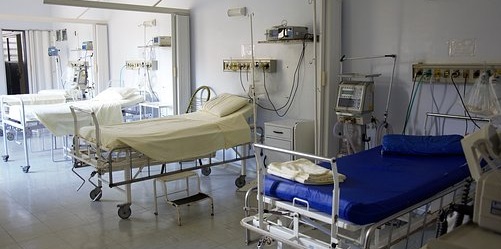The dominos continue to fall in Canada’s rapidly imploding healthcare system. This week, the spotlight is on British Columbia’s cancer patients who have been waiting months to undergo radiation treatments.
As a result, BC Health Minister Adrian Dix has announced that the province will send patients with breast and prostate cancer (the largest patient populations that have been waiting for extended periods) to clinics in Bellingham, Washington, for radiation therapy.
While this is welcome news for some, it must be clear that this announcement is not progress; it is a desperate measure. It is an obvious and shocking admission by the province’s NDP government that it has screwed up healthcare so badly and for so long that it can no longer take care of its own citizens.
Sadly, it is not as though the BC government did not see this scenario on the horizon. Across the country, wait times for specialists, surgery and diagnostic imaging have all reached a crisis point and are now measured in months and even years. It is estimated that between 2.9 and four million Canadians are currently waiting for medically necessary procedures and appointments.
In British Columbia, various letters and reports should have served as urgent warnings and been acted on months ago. Last fall, the BC Radiological Society sent a letter to BC’s health minister stating that hundreds of thousands were waiting for medical imaging and warning of a “tsunami of cancer cases” if the province failed to address the delays. That letter followed a similar one from BC physicians claiming that there were one million patients on wait lists to see a specialist. Another report found that BC women were waiting an unacceptable period of “12-13 weeks” for breast biopsies.
These delays are significant and can have deadly consequences. For example, a 2020 study in the British Medical Journal showed that delaying surgery for breast cancer by eight weeks increased the risk of death by as much as 17 percent; and a 12- week delay by 26 percent.
Even more ominous was an investigation into systemic problems at the province’s cancer care agency, BC Cancer, that found long wait times were worsening outcomes for patients. Only 20 percent of patients had their first medical consultation with an oncologist within the recommended period of two weeks. In comparison, that same percentage is 75 percent in Ontario.
The same report even claimed that patients as young as 40 had died prior to their first medical consultations or had chosen medical assistance in dying because of the overwhelming anxiety and pain associated with waiting for treatment.
Meanwhile, physicians at BC Cancer are self-reporting the highest levels of stress, burnout and disengagement among Canadian oncologists. In fact, since 2020, 18 oncologists have left BC Cancer because, according to some, they could no longer provide the appropriate level of care to cancer patients.
All of the above amounts to a massive failure in adequately serving cancer patients in British Columbia. While the present announcement means that patients with breast and prostate cancer will finally be receiving treatment, it comes at a tremendous cost to patients, their families and the provincial government.
Traveling to the United States for treatment will undoubtedly involve increased stress and a major uprooting of patients and their families. Jobs and income will be sacrificed. Moms and dads will have to leave their homes and most patients will require a family member/companion to assist them. In other words, families will be torn apart at the very time when familial support is most crucial.
As often happens when drastic measures are taken, the financial costs will be inordinately greater than treating patients at BC Cancer. The government will cover all costs including treatment, travel, meals and accommodation, as well as any emergency hospital costs while in the United States. Of course, all this will be done at US prices and in US dollars. It is time to put aside the notion that universal healthcare is Canada’s great legacy. Our misguided attempts to maintain a single-payer, universal healthcare system have rendered our medical system unable to serve those who need it most. That leaves us to rely on the American medical system to bail us out – the very system that Canadians so arrogantly deride as inferior to our own.
Where is the moral superiority in that?
Susan Martinuk is a Senior Fellow at The Frontier Centre for Public Policy and author of Patients at Risk: Exposing Canada’s Health-care Crisis.



